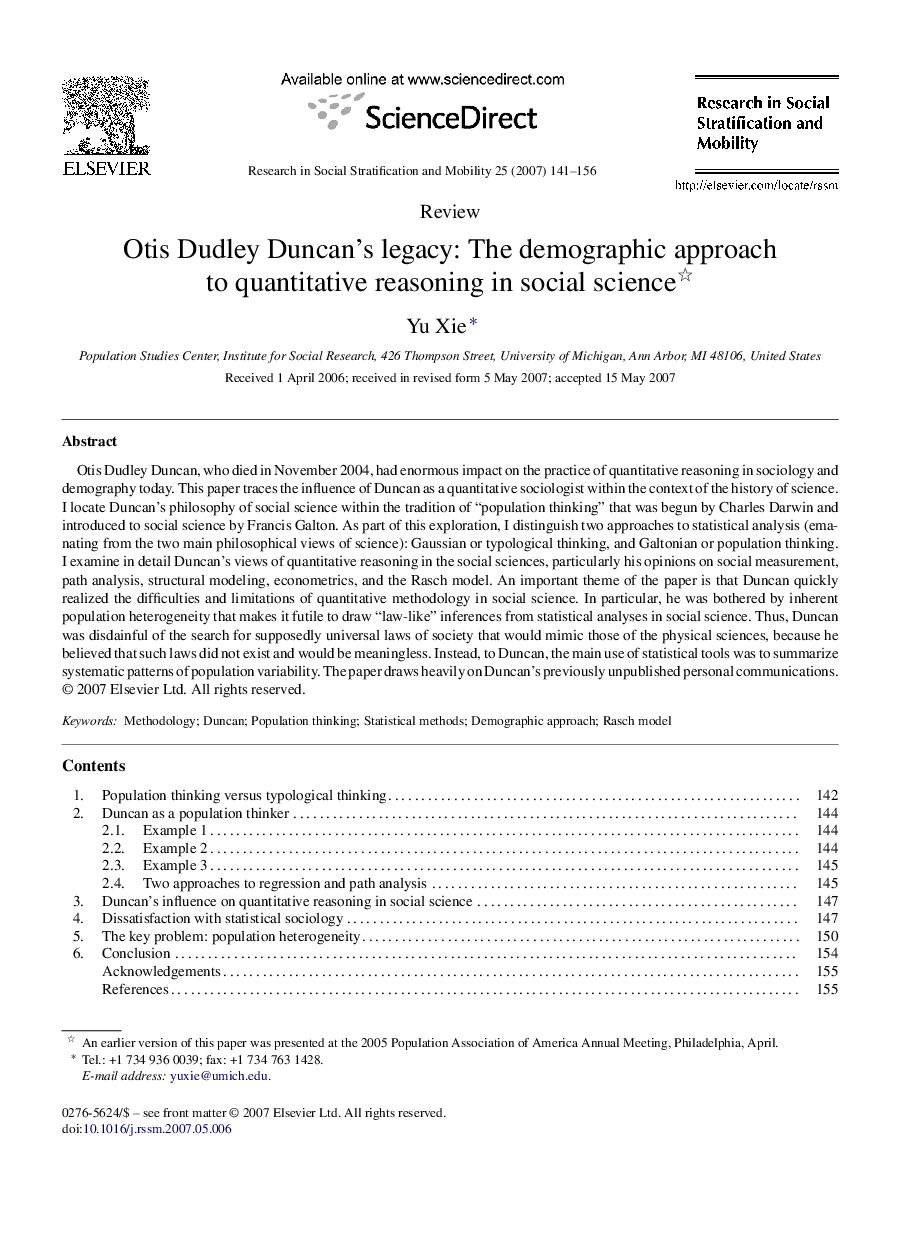| کد مقاله | کد نشریه | سال انتشار | مقاله انگلیسی | نسخه تمام متن |
|---|---|---|---|---|
| 998667 | 936705 | 2007 | 16 صفحه PDF | دانلود رایگان |

Otis Dudley Duncan, who died in November 2004, had enormous impact on the practice of quantitative reasoning in sociology and demography today. This paper traces the influence of Duncan as a quantitative sociologist within the context of the history of science. I locate Duncan's philosophy of social science within the tradition of “population thinking” that was begun by Charles Darwin and introduced to social science by Francis Galton. As part of this exploration, I distinguish two approaches to statistical analysis (emanating from the two main philosophical views of science): Gaussian or typological thinking, and Galtonian or population thinking. I examine in detail Duncan's views of quantitative reasoning in the social sciences, particularly his opinions on social measurement, path analysis, structural modeling, econometrics, and the Rasch model. An important theme of the paper is that Duncan quickly realized the difficulties and limitations of quantitative methodology in social science. In particular, he was bothered by inherent population heterogeneity that makes it futile to draw “law-like” inferences from statistical analyses in social science. Thus, Duncan was disdainful of the search for supposedly universal laws of society that would mimic those of the physical sciences, because he believed that such laws did not exist and would be meaningless. Instead, to Duncan, the main use of statistical tools was to summarize systematic patterns of population variability. The paper draws heavily on Duncan's previously unpublished personal communications.
Journal: Research in Social Stratification and Mobility - Volume 25, Issue 2, 2nd Quarter 2007, Pages 141–156